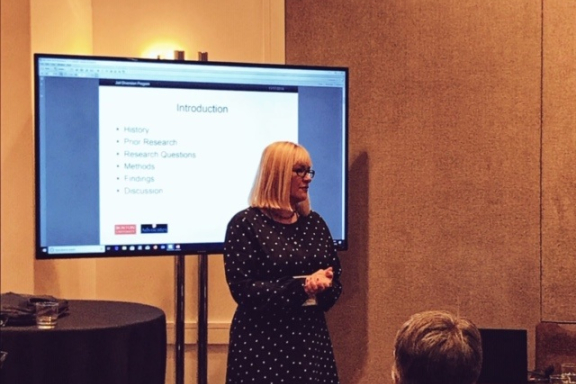Get Help
If you or a loved one needs help now, our caring staff are available. Reach out today.
Make a Referral
Complete our referral form for a person you support or family member in need of services
Sign Up for Our Mailing List
Co-response jail diversion programs were on the agenda at the American Society of Criminology’s annual international conference: “Institutions, Cultures, and Crime,” held this month in Atlanta, Georgia. Other topics at the conference included California’s Law Enforcement Assisted Diversion (LEAD), police-involved opioid overdose encounters, and police relationships with youth.
Advocates’ Jail Diversion program director Dr. Sarah Abbott participated in a panel about police-based programs to reduce community harm. Abbott, who has conducted extensive research on the topic, was joined on the panel by Shea Cronin and Danielle Rousseau, both of Boston University.
Research included pre- and post-co-response implementation surveys of officers who are dispatched on calls with a mental health clinician. Surveys demonstrated positive changes in officer attitudes towards mental health-related and substance-related calls.
Many police-public contacts involve individuals with mental illness, which has spurred a number of reforms within law enforcement agencies, including awareness and education programs, specialized trainings, crisis intervention teams, and co-responder models.
Advocates’ Jail Diversion Program partners with fifteen police departments with the pre-arrest co-response model, and recently launched the first of its kind Co-Response Training and Technical Assistance Center (CR-TTAC). The CR-TTAC provides the unique opportunity for police departments to receive Mental Health First Aid for Public Safety trainings to better serve their community. To learn more about Advocates’ Jail Diversion program, visit: www.jaildiversion.org
